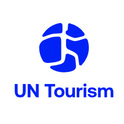Tourism key to foster trade in Least Developed Countries
Tourism can make a strong contribution to the economies of Least Developed Countries where the sector is a major exporter concludes the report 'Tourism for Sustainable Development in Least Developed Countries' launched on the occasion of the Aid for Trade Review held in Geneva. The report was produced by the World Tourism Organization (UNWTO), the International Trade Centre (ITC) and the Enhanced Integrated Framework (EIF).
Tourism represents 7% of all international trade and is of increasing relevance to the trade community. Tourism is part of services trade, accounting for 30% of the world's trade in services. This is particularly true for the Least Developed Countries (LDCs), where it represents 7% of total exports of goods and services, a figure that stands at 10% for non-oil LDC exporters.
In view of the above, and as shown in the report, tourism has been recognized as a key sector for trade-related technical assistance in LDCs. Forty-five out of 48 Diagnostic Trade Integration Studies analysed for the report feature tourism as a key sector for development.
Yet, despite tourism's value in the trade agenda, it is often difficult to direct trade-related technical assistance towards the sector because tourism and trade tend to fall under different line ministries. Successful interventions in tourism require strong collaboration across government agencies as well as across different actors at the regional or local level.
The report aims to increase the commitment and investment in coordination and raise tourism's prominence in trade-related technical assistance as to ensure the sector delivers on its powerful capacity to create jobs and incomes where they are most needed and for those who are most vulnerable – including youth and women.
As active partners of the EIF, UNWTO and ITC are working to contribute to this process of increased co-ordination and collaboration by joining forces in the design and implementation of tailored tourism technical assistance and tourism export strategies, and leveraging resources.
The report is launched to coincide with the International Year of Sustainable Tourism for Development 2017. In the context of the universal 2030 Agenda for Sustainable Development and the Sustainable Development Goals (SDGs), the International Year aims to support a change in policies, business practices and consumer behaviour towards a more sustainable tourism sector that can contribute to all the 17 SDGs.
Goal 17 sets as one of the targets a "significant increase of exports of developing countries, in particular with a view to doubling the least developed countries' share of global exports by 2020", to which tourism as service export can contribute.
Tourism and the Enhanced Integrated Framework are include in Goal 8, aiming at building inclusive and sustainable economic growth and creating jobs, thus contributing to the structural transformation of LDCs.
About UN Tourism
The World Tourism Organization (UN Tourism) is the United Nations agency responsible for the promotion of responsible, sustainable and universally accessible tourism.
As the leading international organization in the field of tourism, UN Tourism promotes tourism as a driver of economic growth, inclusive development and environmental sustainability and offers leadership and support to the sector in advancing knowledge and tourism policies worldwide.
Our Priorities
Mainstreaming tourism in the global agenda: Advocating the value of tourism as a driver of socio-economic growth and development, its inclusion as a priority in national and international policies and the need to create a level playing field for the sector to develop and prosper.
Promoting sustainable tourism development: Supporting sustainable tourism policies and practices: policies which make optimal use of environmental resources, respect the socio-cultural authenticity of host communities and provide socio-economic benefits for all.
Fostering knowledge, education and capacity building: Supporting countries to assess and address their needs in education and training, as well as providing networks for knowledge creation and exchange.
Improving tourism competitiveness: Improving UN Tourism Members' competitiveness through knowledge creation and exchange, human resources development and the promotion of excellence in areas such as policy planning, statistics and market trends, sustainable tourism development, marketing and promotion, product development and risk and crisis management.
Advancing tourism's contribution to poverty reduction and development: Maximizing the contribution of tourism to poverty reduction and achieving the SDGs by making tourism work as a tool for development and promoting the inclusion of tourism in the development agenda.
Building partnerships: Engaging with the private sector, regional and local tourism organizations, academia and research institutions, civil society and the UN system to build a more sustainable, responsible and competitive tourism sector.
Our Structure
Members: An intergovernmental organization, UN Tourism has 160 Member States, 6 Associate Members, 2 Observers and over 500 Affiliate Members.
Organs: The General Assembly is the supreme organ of the Organization. The Executive Council take all measures, in consultation with the Secretary-General, for the implementation of the decisions and recommendations of the General Assembly and reports to the Assembly.
Secretariat: UN Tourism headquarters are based in Madrid, Spain. The Secretariat is led by the Secretary-General and organized into departments covering issues such as sustainability, education, tourism trends and marketing, sustainable development, statistics and the Tourism Satellite Account (TSA), destination management, ethics and risk and crisis management. The Technical Cooperation and Silk Road Department carries out development projects in over 100 countries worldwide, while the Regional Departments for Africa, the Americas, Asia and the Pacific, Europe and the Middle East serve as the link between UN Tourism and its 160 Member States. The Affiliate Members Department represents UN Tourism's 500 plus Affiliate members.
Rut Gómez Sobrino
Principal Media Officer
(+34) 91 567 81 60
UN Tourism
